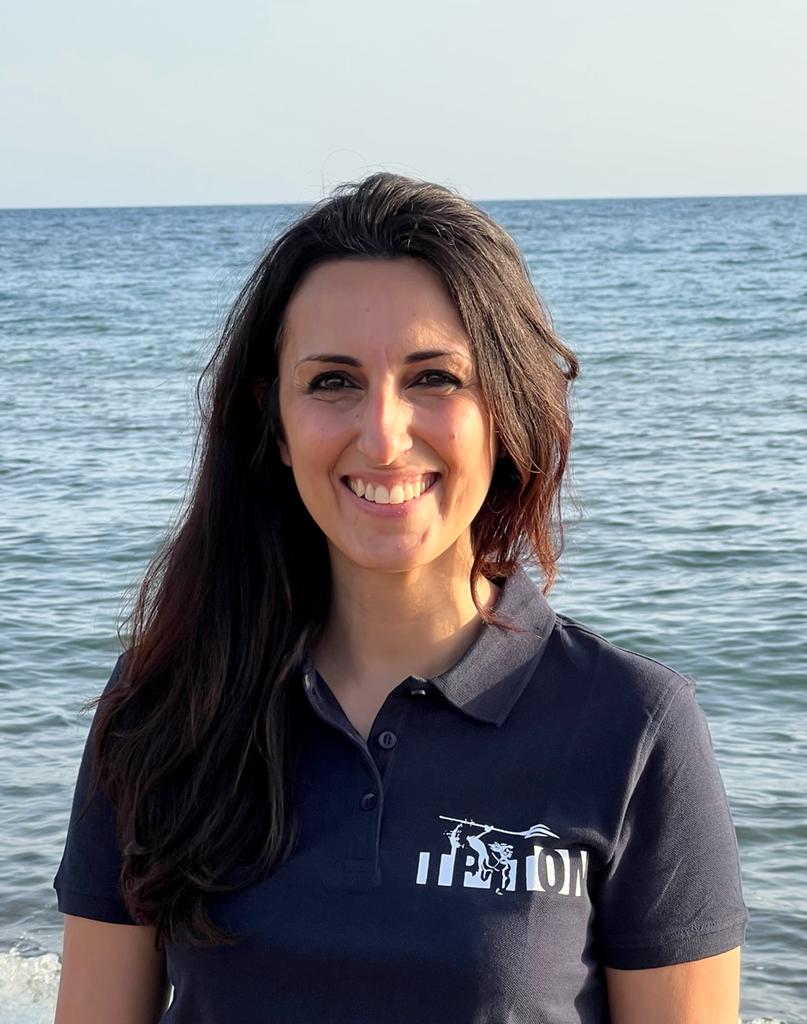Triton Research
It’s a story that begins with a love for the sea, which we believe we know well, but in reality, we only admire its surface, a faint clear frame at the edge of the horizon. What we don’t realize is that the sea represents a treasure trove of biodiversity—turtles, cetaceans, whales, dolphins, sperm whales—constantly in danger.
How can marine species survive if they ingest kilos of plastic and waste carried by currents? How can they communicate with each other if the sea is invaded by noise, the clamor of thousands of propellers that make the depths as deafening as a highway? These are questions that studies by Triton Research, part of the European Union’s LIFE project, seek to answer. The four-year research project will be managed by a team led by two young researchers based in Naples, Valeria Pulieri and Antonella Servidio, aiming to protect endangered marine species.
Triton Research SRL was born from a family of entrepreneurs’ deep love for the sea and their commitment to providing tangible tools for its conservation. With great energy and determination from its inception, Triton Research embarked on its mission through scientific dissemination, making it original and accessible to the general public, as well as offering technical and professional support for the development and management of Italian and international projects aimed at conserving the sea and its species in all phases. Holding steadfast to this objective, the Triton team has expanded, enriched by experts with solid experiences in the field, while also embracing young and dynamic professionals.
Valeria Pulieri
Valeria, with a degree in Biological Sciences, completed a Ph.D. focusing on biodiversity bioindicators. “Simultaneously, I began working in European projects since 2006. In particular, I coordinated the first LIFE project for the conservation of marine turtles in Calabria, where the most important Italian nesting area is located” she recounts. “For over 10 years, I’ve been involved in conservation and environmental sustainability projects under the European LIFE funding program. With Triton Research, I’ve had the opportunity to collaborate as a Project Manager on two LIFE projects financed in the 2020 call: LIFE PINNA, aimed at saving the Pinna nobilis, commonly known as the noble pen shell, the largest bivalve mollusk in the Mediterranean Sea, and the LIFE A-MAR Project, ‘Knowing and loving the Natura 2000 marine sites to protect them.’ This project aims to raise awareness about the system of marine sites protected by the Natura 2000 network, which is still relatively unknown in the Mediterranean countries of the European Union. It targets key stakeholders who frequent and appreciate these areas, even without being fully aware of their protected status, such as residents, tourists, sailors, divers, and fishermen.”
Antonella Servidio
Antonella lived in Bologna until she was 23 years old. “With clear ideas and a bit of determination, I started my journey with a degree in Natural Sciences. I continued with years of volunteering and scholarships abroad in San Diego, USA, and Barcelona, Spain, followed by a Ph.D. in Zoology at the University of St Andrews in Scotland” she explains. “I spent 11 years in the Canary Islands, a paradise for those devoted to the sea and especially to cetaceans. Working for NGOs and universities, among boats, computers, and conferences, I gained years of international experience in designing, managing, and executing numerous scientific research, outreach, and educational projects, with a particular focus on cetacean ecology and conservation. My return to Italy in 2010 opened up new opportunities without closing the previous ones.”
Despite returning to her hometown without the sea, Antonella continues to work in the field with her NGO in the Canary Islands on cetacean research projects while also becoming involved in the scientific community in Italy. “Finally, Triton Research arrived, involving me and placing me within its path and team as the Project Manager of the interesting yet challenging LIFE CONCEPTU MARIS Project” she says. “The project arose from the need to fill gaps in understanding the spatiotemporal distribution of the most common species of cetaceans and marine turtles, especially in offshore areas. The ultimate goal of the project is to develop effective conservation strategies for safeguarding the target species.”
Future objectives?
Triton Research SRL aims not to stop and continues to grow, conceptualizing new conservation projects, organizing educational events, and, just these days, launching the Triton ETS association. This association will be even more dedicated to inspiring all sea enthusiasts toward positive change, transmitting knowledge and awareness to the public, empowering them to take a leading role in marine conservation and protection. Among the many planned initiatives, this will happen by delivering clear scientific information, offering professional training, promoting sustainable tourism, and providing education in schools.
Source: La Nuvola del Lavoro | Corriere



